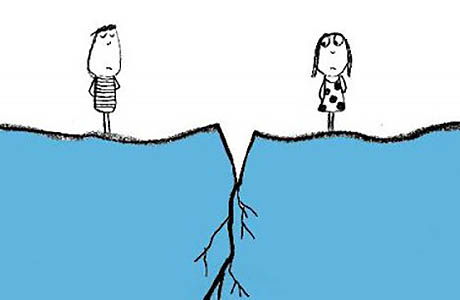One of the greatest mysteries of life is why the heart wants what it wants.
If we were truly rational creatures, romantic love wouldn’t exist, because there’s nothing rational about it. It comes when it wants. It sometimes stays when it’s no longer welcome. Love is hard to kill — like a stubborn weed. It can stick around and make us feel crazy because of the intensity of the need and the longing.
But when the heart is finally finished with someone, the last of the flame dies. It’s no longer love or hate or desire or anger. All that remains is cold indifference.
What makes a heart decide to love one person above all? What causes the heart to stubbornly stick with that obsession when it makes no sense? And what causes the fever to break? What causes love to die?
I’ve been in love five times in my life and each one has been very different. In each case, I didn’t think the love could possibly die. Especially with earlier loves, they were immature forms that probably weren’t destined to last. At least one was with someone who was seriously dysfunctional. (When I heard from that one after awhile of silence, a psychologist said to me, “Burn it!” She rarely expressed her recommendations so strongly.)
As I’ve gotten older and have a greater understanding of what I want and what I need, my heart has been quick to know what it wanted. And it’s been right. I’ve fallen in love quickly — and the end of that sort of love has been very slow and very painful. When my heart found what it needed, I was willing to sacrifice almost anything.
But even deep love and desperate need eventually die if the heart doesn’t get what it wants. And then the fever breaks and the obsession fades. The rational part of my brain then has more influence — and it whispers ever more loudly, “How could you possibly want someone who treated you like that?”
Eventually, even the heart has no answer for that question. The warm and fierce need fades. The ground splits between the heart and its loved one. The distance grows. And then, all that’s left is indifference.
I can look at my past relationships and see them more clearly now. I’m thankful I didn’t end up with some of the women. I’m thankful I didn’t have children with some. I’m thankful that I escaped certain types of dysfunction.
But I see the good along with the bad. In each of the women I’ve loved, I see the characteristics that attracted me and I know why I was so attracted to them. Even so, I can’t say what made my heart point to one among a group of attractive and intelligent women and say, “That one. She’s the one.”
When the obsession has faded and I can look at them soberly, I know what would have been best for me. Even removing the powerful need, I know which one would have worked. At least I think so. And I mourn the loving family which could have been mine.
When love ends, it’s easy to think, “You lost,” either about yourself or someone else. But the truth is that every time a mutual love dies, both people lose. No real love can be replaced. Its death means a permanent emotional and spiritual loss for both people.
What does my heart want now?
It wants what it’s always wanted. My heart wants a beautiful and brilliant woman who happens to adore me and who wants to build a partnership — and a family — with me. The rational part of me could list all the specific things which make me fall for her. The list is long and it’s predictable for me.
But the truth is that I never know what I want until I see it. It’s not just a beautiful face, of course. There’s just something intangible in a woman that my rational side can’t see. When that happens, I have no power to stop it.
Before I know it, my heart will again sense that intangible thing it needs in someone and it will say, “I want that one. I will do anything to win her heart.”
And once again, I will take a gamble on love, hoping this time that it’s returned and nurtured for good — that this will be the time when it will never make the slow and painful fade to indifference.

 We’re neither friends nor enemies, just strangers who share the past
We’re neither friends nor enemies, just strangers who share the past ‘This path leads to somewhere I think I can finally say, I’m home’
‘This path leads to somewhere I think I can finally say, I’m home’ When love finally dies, it’s like a fever breaks and the pain is gone
When love finally dies, it’s like a fever breaks and the pain is gone